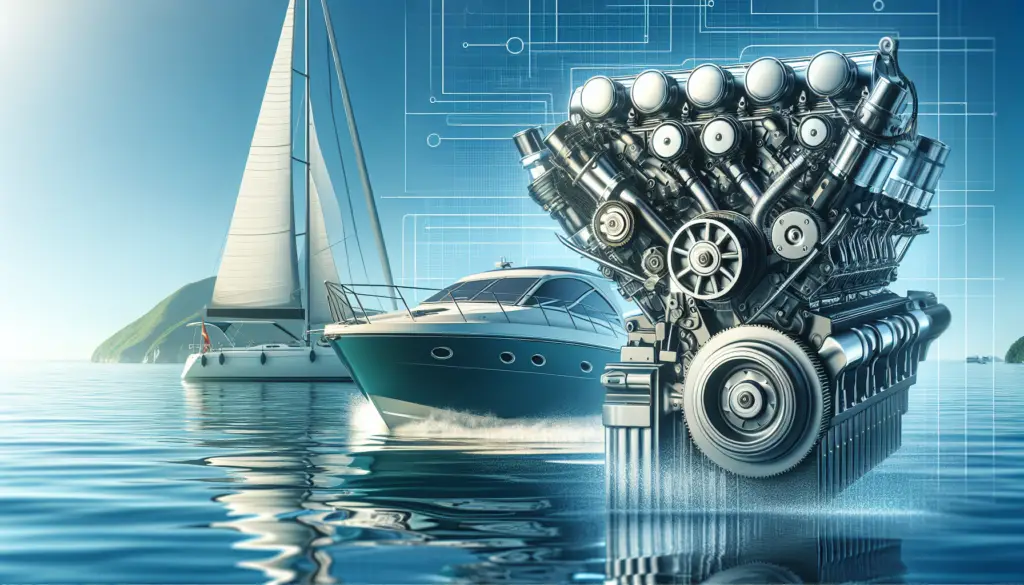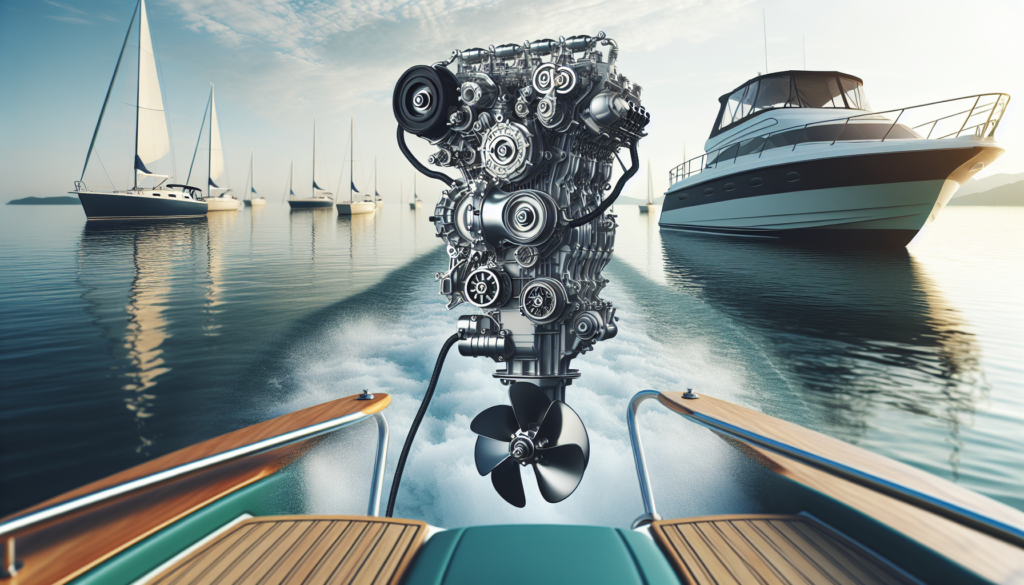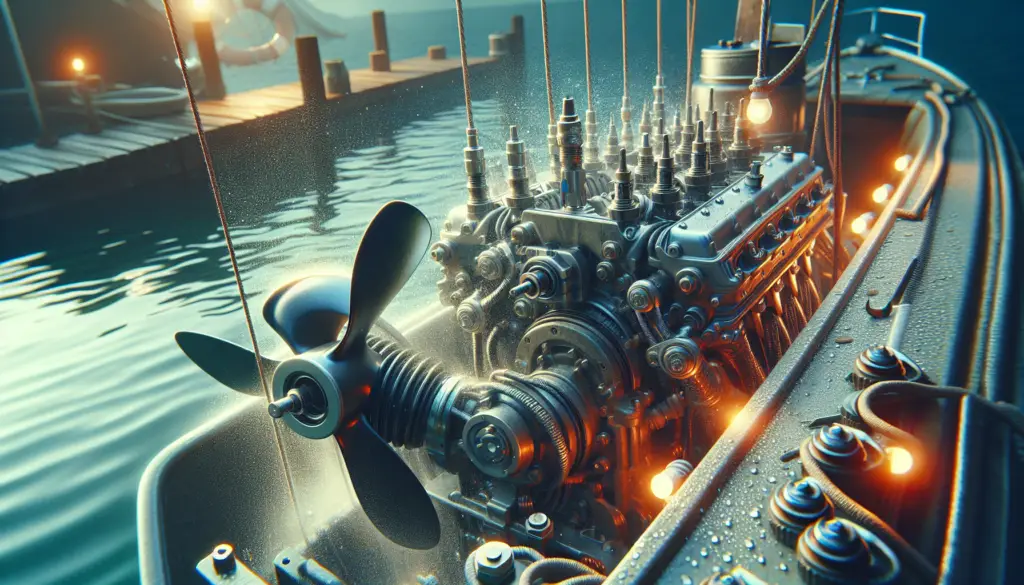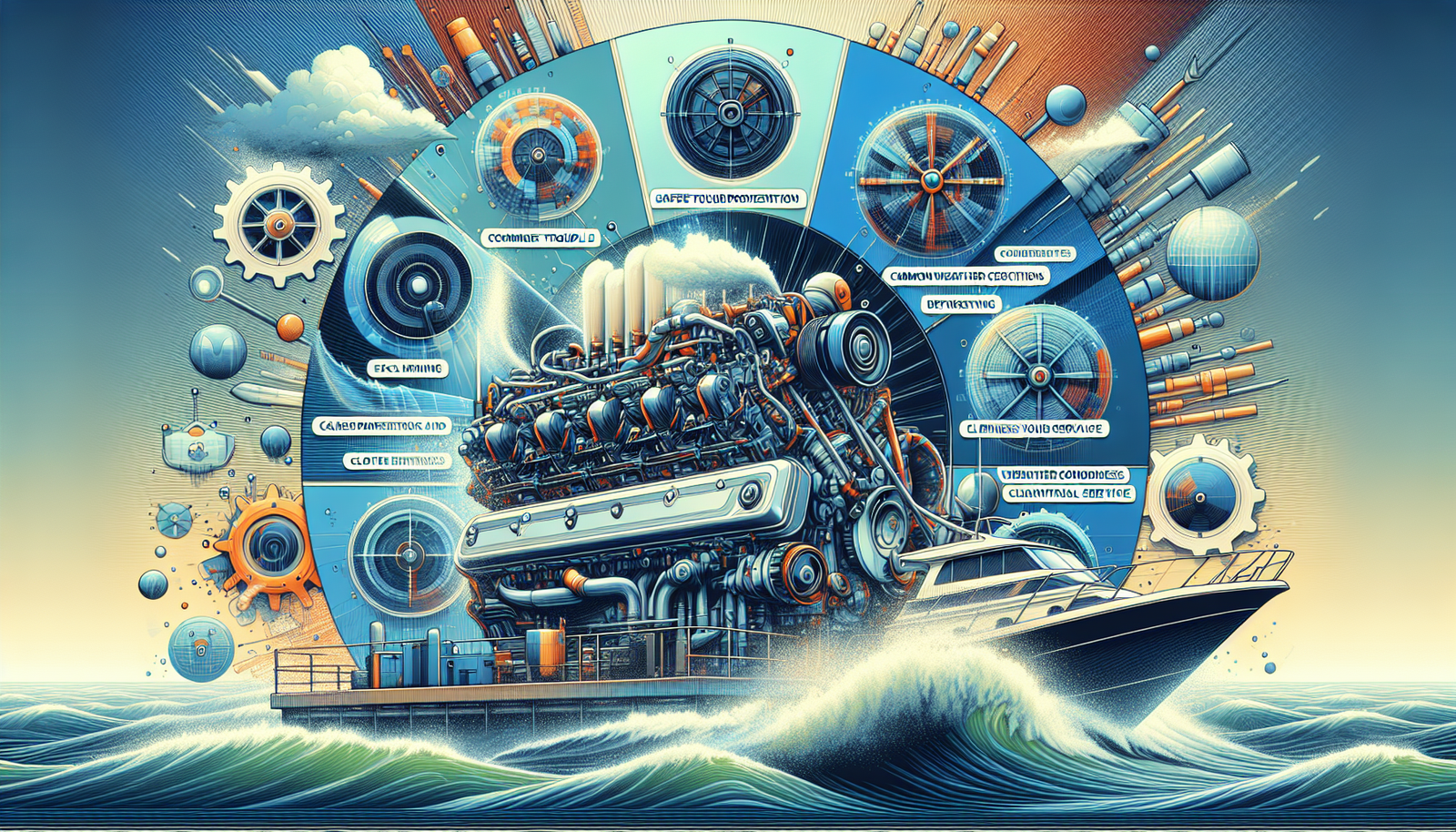Ready to conquer the waters with a joyful heart and a calm mind? Sailing can be an incredible experience, simultaneously peaceful and thrilling. However, ensuring your boat’s engine safety is vital to secure a smooth, worry-free journey. Take a moment; imagine the sun setting, the sea breeze in your hair, and nothing but the endless ocean in front of you. This serenity can quickly turn into a somber situation if your boat engine fails halfway. The guide, “Essential Boat Engine Safety Tips for Smooth Sailing,” provides you with key insights and tips to ensure your boat’s engine is in top-notch condition, promising serene waters ahead.
Understanding Basic Boat Engine Operations
It’s critical to have a grasp on basic boat engine functions and terminology, as it directly influences your boat’s performance and your overall boating experience. A sound understanding of the engine’s operation can also help you react calmly and logically to unexpected situations or potential engine failures.
Acquiring knowledge on aspects of basic boat engine terminologies
Start by familiarizing yourself with standard boat engine phrases and concepts, such as propellers, cylinders, valves, pistons, and engine cycles. These terms can help you better understand your boat’s engine system, facilitating more effective communication with mechanics or peers when discussing engine-related issues.
Learning how various parts of the boat engine work
Understanding how your boat’s various engine components work together is the next step. This involves having an idea of the roles and responsibilities of essential parts like the cooling system, exhaust system, combustion chamber, and fuel delivery system. Knowing how these parts function can help you diagnose issues accurately and perform basic preventative maintenance tasks efficiently.
Understanding the functions of each section of your boat engine
Each engine section serves a unique purpose in making your boat operate smoothly. For example, the spark plugs provide the ignition for the fuel-air mixture, while the carburetor works to keep that mixture in perfect balance. The fuel delivery system ensures there’s always enough fuel, while the exhaust system extracts waste gases out. Understanding these responsibilities means you’re better equipped to interpret signs of malfunction, thus promoting maritime safety.
Importance of Regular Engine Maintenance
Regular engine maintenance plays an essential role in prolonging your boat’s lifespan and guaranteeing your safety while out on the water. It reduces the chances of on-water breakdowns, ensures the engine’s optimal performance, and ultimately saves you from huge repair expenses down the line.
Role of preventative maintenance in ensuring boat engine safety
Preventative maintenance, which includes regular checks, cleaning, and timely component replacements, safeguards your engine and your wellbeing. It helps identify potential issues long before they evolve into major problems and allows for early resolution, keeping the engine running smoothly and efficiently.
Keeping track of engine maintenance schedules
Scheduling and adhering to regular maintenance checks is crucial for boat engine upkeep. Make a habit of noting every inspection, oil change, or filter replacement. This maintenance log helps in detecting sudden changes or irregularities in your engine’s performance, as well as serving as a useful reference for mechanics or future buyers.
Reading and understanding the boat’s engine manual
Your boat’s engine manual should be your go-to document for anything concerning your engine operations, maintenance, and troubleshooting. It provides model-specific advice, recommended maintenance intervals, and other critical instructions. Regularly reviewing and understanding this manual ensures you’re following best practices to keep your boat engine in top shape.

Essential Tools for Boat Engine Maintenance
Having the right tools is as crucial as knowing how to use them. A well-equipped set of tools is your first line of defense when faced with minor engine issues.
Listing down necessary tools for basic engine checks
Notable among the essential tools you should have on hand are a set of wrenches, screwdrivers, pliers, and a spark plug socket. Include a multimeter for electrical checks, and a compression tester to identify potential engine problems.
Keeping a maintenance kit on board at all times
A well-stocked boat engine maintenance kit should be a staple on board. This kit should contain vital tools and materials like spare spark plugs, engine oil, filters, and a basic first aid kit for emergent repairs.
Knowing how to use each tool properly
Having tools is one thing, knowing how to use them accurately and safely is another. Take the time to learn the right use of each tool and how to apply them across various maintenance tasks, which leads to more effective and efficient engine care.
Proper Boating & Engine Safety Gearing
While understanding your boat’s engine operations and maintenance are essential, having the right safety gear on board is equally paramount.
Investing in quality life jackets and safety equipment
Life jackets should be considered a top priority; ensure each passenger has a well-fitted, quality life jacket. Also, consider adding extra floatation devices, a rescue sling, and a throwable life ring for emergencies to your safety gear checklist.
Importance of distress signals & communication devices
Distress signals like flares, signal mirrors, and air horns are vital for emergency situations. Equally important is having reliable communication devices like a VHF radio to maintain contact with the coast guard or other nearby boats when in distress.
Keeping fire extinguishers and first aid kits on board
Fire extinguishers and first aid kits are non-negotiable safety essentials on any boat. Having these items and knowing how to use them could mean the difference between life and death.

Pre-Sailing Boat Engine Check-up
Before setting out on any sailing adventure, performing a comprehensive engine check-up is a must to ensure safe, trouble-free sailing.
Creating a pre-sailing checklist for engine examination
Having a pre-sailing checklist provides a fool-proof way to ensure no necessary pre-sailing engine check is forgotten. This list should include items like checking oil levels, battery condition, belts and hoses, cooling and exhaust systems, as well as your fuel supply.
Looking out for visible signs of damage or wear
Keep an eye out for signs of wear, damage, or leaks in your boat engine as they could indicate impending major malfunctions. Thankfully, early detection makes resolution faster, easier, and less costly.
Checking the cooling system and exhaust for irregularities
One area you especially don’t want to overlook is your boat’s cooling system. Make sure the impeller, seawater pump, and thermostat are in all great shape. Don’t forget to check the exhaust system too—it is crucial for maintaining a safe, efficient engine operation.
Fuel Management and Safety
Proper fuel management goes beyond ensuring that you have enough fuel for your trip—it’s also about secure fuel storage, handling, and usage.
Understanding proper fuel storage practices
The proper fuel storage involves keeping your fuel in a well-ventilated area, away from direct sunlight or heat sources. Boat engines run on volatile fuel types that necessitate careful handling to prevent accidents.
Inspection of fuel lines and tanks
Regular examination of fuel lines for signs of wear or damage and ensuring the fuel tank is free from any contamination are essential preventive measures. It helps reduce the chances of fuel-related engine issues and potential safety hazards.
Benefit of using fuel stabilizers and the right fuel type
Using fuel stabilizers can help maintain the quality of fuel during storage periods, reducing the chances of buildup and complications. More importantly, always ensure to use the right type of fuel recommended for your boat engine to prevent damage and maintain optimal performance.

Checking and Replacing Filters
Filters are a primary line of defense against engine damage. They prevent impurities from interfering with the internal workings of your engine.
Importance of clean air and fuel filters for engine operation
Air and fuel filters are crucial for maintaining optimal engine performance. They keep the fuel and air supply clean, ensuring a smooth combustion process and improving performance.
Identifying when a filter needs replacement
Knowing when to replace your filters can be tricky. However, a quick look at your engine manual should guide you on recommended intervals of replacement. In addition, any significant decrease in engine performance might suggest it’s time to change your filters.
Proper method of changing filters
Changing filters is typically a straightforward task that you can accomplish by following your engine manual instructions. Note, however, that each engine model might require a unique replacement process. Always consult your manual to be sure.
Understanding and Monitoring Engine Temperatures
The temperature of your engine can tell a lot about its health. Being aware of what constitutes a normal engine temperature for your boat helps you recognize potential issues early.
Learning what constitutes a normal engine temperature
Engine temperatures vary between boat models. Your engine manual will offer guidance on what the normal operating temperature range is for your specific model. Any significant deviations from this range could signal potential issues.
Effect of over-heating on engine performance and safety
Overheating can result in engine damage, decreased performance, and potential safety hazards. If your engine continually runs hot, this could indicate problems like coolant leaks, failing thermostats, or damaged water pumps.
Preventing and handling situations of engine overheating
Proactive steps to prevent overheating include regular inspection and maintenance of the cooling system. If you notice your engine running hot, stop it immediately, check for issues, and let it cool down before restarting it.

Attending to Engine Noise and Vibrations
Recognizing irregular noises and vibrations from your boat engine could foreshadow potential issues and help you prevent them from escalating.
Identifying common engine noises and vibrations
Normal engine operations include a consistent hum or buzz. Unusual sounds or vibrations can indicate problems with the engine. Be on the lookout for strange noises or changes in vibration patterns.
Determining the cause of unusual engine behavior
Any unusual engine behavior should urge you to conduct quick checks. Check the engine’s overall operation, inspect the motor mounts, belts, or piston operations. If nothing is apparent, it might be time to call in a professional mechanic.
Knowing when professional help is needed
While basic knowledge and regular maintenance can prevent several engine issues, some situations require professional help. If you’re unable to diagnose or fix a problem, a mechanic’s expertise can get you sailing smoothly again.
Building a Relationship with a Reliable Mechanic
A good mechanic can be your best friend when it comes to keeping your boat in prime condition.
How a good mechanic can facilitate smooth sailing
A reliable mechanic can spot early signs of issues that inexperienced eyes may miss. Regular check-ups from a professional can ensure your boat’s engine is in top condition, ensuring smooth and worry-free rides.
When to take your boat to a mechanic
If you notice a sudden decrease in engine performance, persistent overheating, or unusual engine noises, it might be time to see a mechanic. Your safety and that of other passengers should always be your priority.
Maintaining the boat’s engine service record
Keeping an accurate record of all engine services, inspections, and repairs can be invaluable. It helps you track your boat’s maintenance history, can facilitate servicing works, and adds value to your boat if you decide to sell it in the future.
To sum up, understanding your boat’s engine, coupled with regular maintenance checks, proper fuel management, and employing the appropriate safety gear, ensures smooth sails ahead. An educated boater is a safe boater, so it’s worth taking the time to learn about your boat and its engine. Happy boating!

